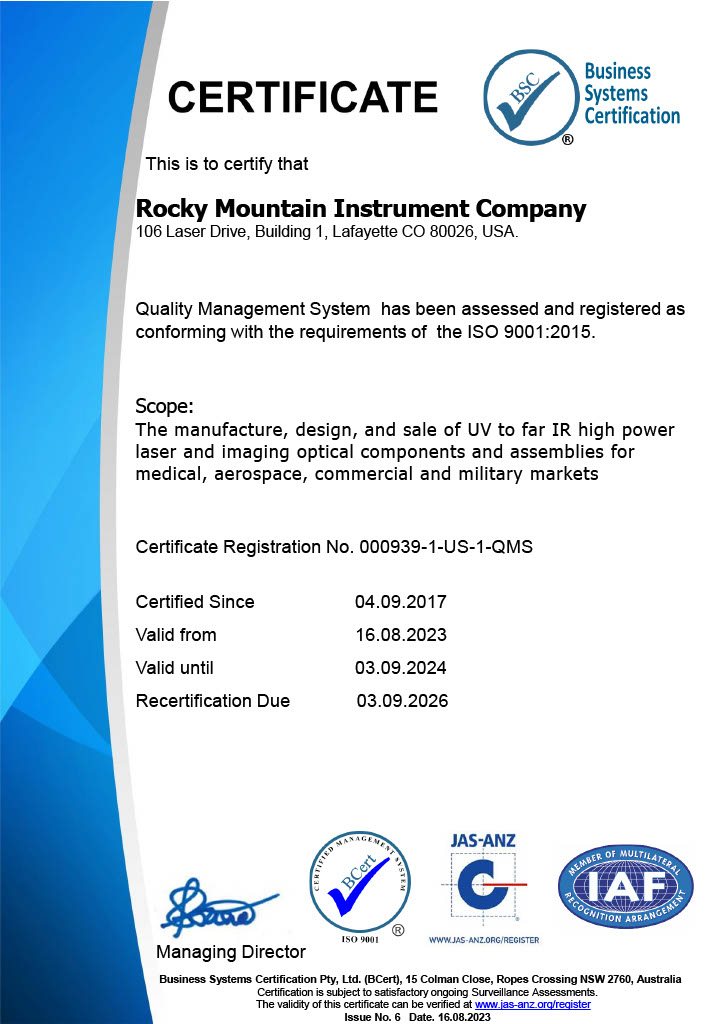About RMI » Certifications
 |
RMI’s continuous commitment to the highest quality standards have resulted in the achievement of ISO 9001, RoHS, and various MIL-SPEC certifications. ISO 9001:2015RMI has a long history of ISO (International Organization for Standardization) certification. Most recently, RMI successfully completed ISO 9001:2015 certification on August 24, 2017. This certificate recognizes our commitment to the highest quality products, manufacturing and processing systems, and corporate infrastructure. MIL-SPECRMI routinely tests to applicable military and customer quality specifications. Our MIL-SPEC certifications include: MIL-PR F-13830B MIL-I-45208 MIL-Q-9858 RoHSAll RMI standard optics and parts are RoHS compliant based on the EU RoHS Directive 2002/95/EC. Custom optics, however, are an exception to RoHS standards in instances when customers request materials that are not compliant in order to meet specific performance requirements and specifications of their custom optics. Upon RequestUpon request from our customers, RMI is able to deliver products that are fully compliant per the following standards: ISO 10110 MIL-C-675 C MIL C-48497A Quality Control TestingIn addition to our various quality certifications, RMI also offers one of the most comprehensive quality control and environmental testing facilities in the industry. Visit our Testing and Metrology page for more details. Conflict Minerals PolicyPer the Dodd-Frank Wall Street Reform and Consumer Protection Act of 2010, publicly-traded companies are required to disclose their use of conflict minerals—these minerals are gold, tin, tantalum, and titanium. RMI has adopted a policy in support of our customers who are subject to the disclosure requirements of the Dodd-Frank Act. This policy requires our suppliers of the minerals mentioned above to certify that their products are conflict minerals free, and also requires them to provide conflict minerals disclosure data. For more information on conflict minerals, visit the SEC's conflict minerals FAQ page. |
